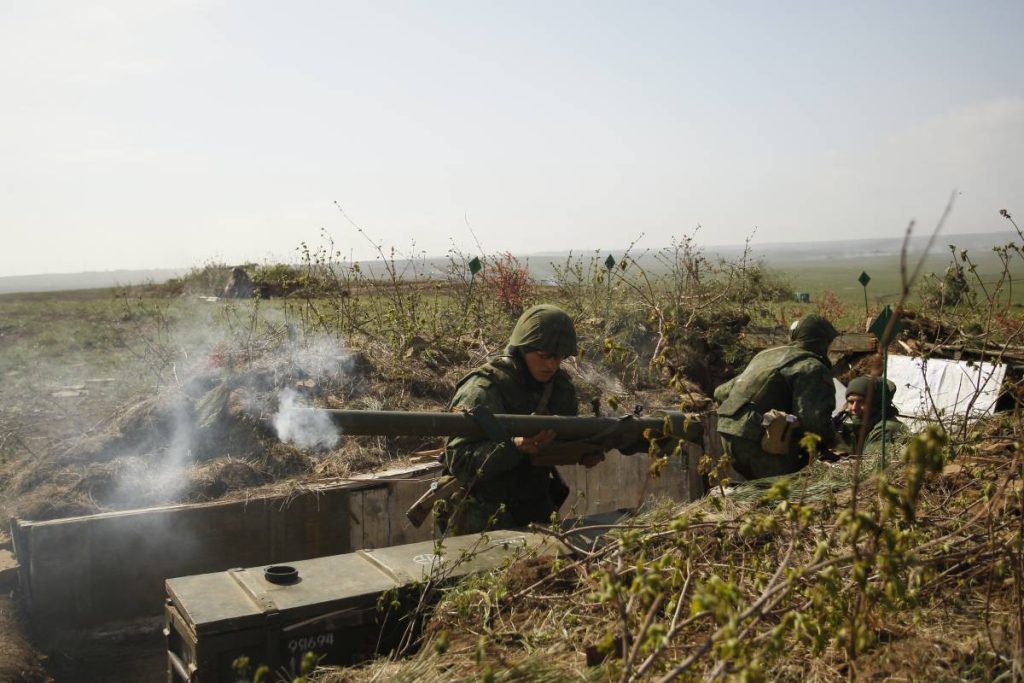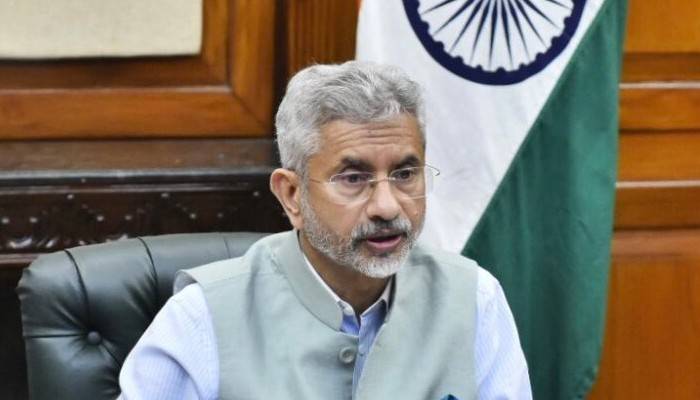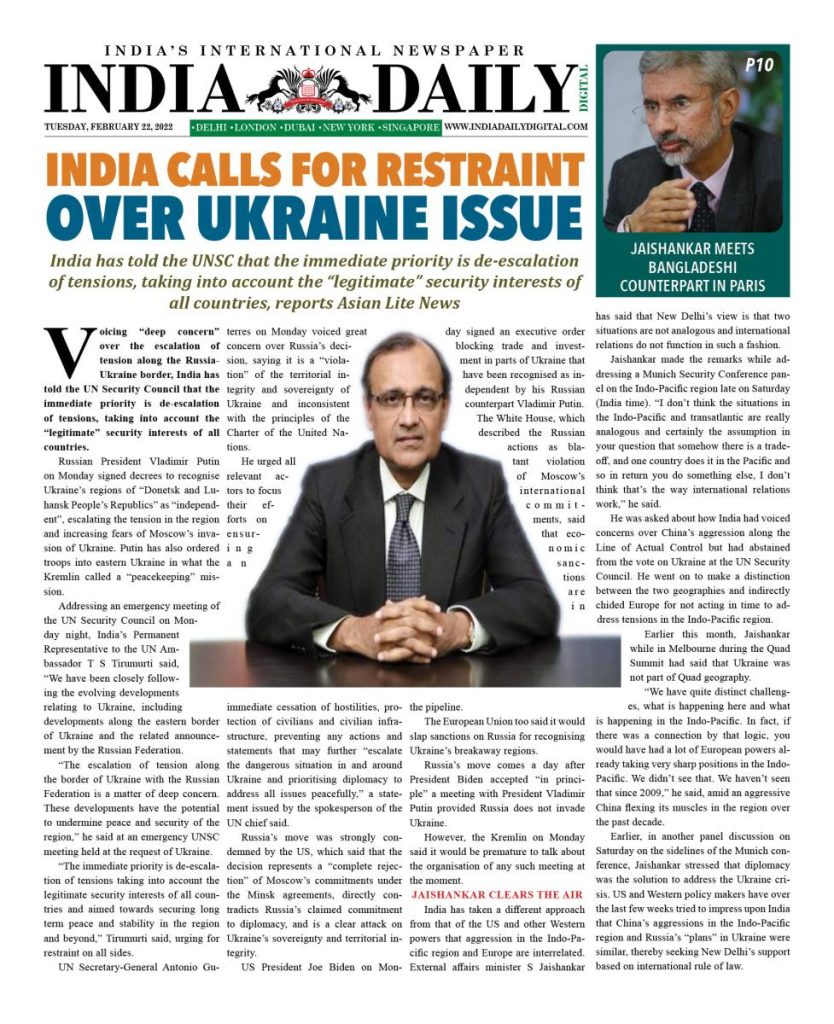
India has told the UNSC that the immediate priority is de-escalation of tensions, taking into account the “legitimate” security interests of all countries, reports Asian Lite News
Voicing “deep concern” over the escalation of tension along the Russia-Ukraine border, India has told the UN Security Council that the immediate priority is de-escalation of tensions, taking into account the “legitimate” security interests of all countries.
Russian President Vladimir Putin on Monday signed decrees to recognise Ukraine’s regions of “Donetsk and Luhansk People’s Republics” as “independent”, escalating the tension in the region and increasing fears of Moscow’s invasion of Ukraine. Putin has also ordered troops into eastern Ukraine in what the Kremlin called a “peacekeeping” mission.
Addressing an emergency meeting of the UN Security Council on Monday night, India’s Permanent Representative to the UN Ambassador T S Tirumurti said, “We have been closely following the evolving developments relating to Ukraine, including developments along the eastern border of Ukraine and the related announcement by the Russian Federation.

“The escalation of tension along the border of Ukraine with the Russian Federation is a matter of deep concern. These developments have the potential to undermine peace and security of the region,” he said at an emergency UNSC meeting held at the request of Ukraine.
“The immediate priority is de-escalation of tensions taking into account the legitimate security interests of all countries and aimed towards securing long term peace and stability in the region and beyond,” Tirumurti said, urging for restraint on all sides.
UN Secretary-General Antonio Guterres on Monday voiced great concern over Russia’s decision, saying it is a “violation” of the territorial integrity and sovereignty of Ukraine and inconsistent with the principles of the Charter of the United Nations.
He urged all relevant actors to focus their efforts on ensuring an immediate cessation of hostilities, protection of civilians and civilian infrastructure, preventing any actions and statements that may further “escalate the dangerous situation in and around Ukraine and prioritising diplomacy to address all issues peacefully,” a statement issued by the spokesperson of the UN chief said.
Russia’s move was strongly condemned by the US, which said that the decision represents a “complete rejection” of Moscow’s commitments under the Minsk agreements, directly contradicts Russia’s claimed commitment to diplomacy, and is a clear attack on Ukraine’s sovereignty and territorial integrity.
US President Joe Biden on Monday signed an executive order blocking trade and investment in parts of Ukraine that have been recognised as independent by his Russian counterpart Vladimir Putin.
The White House, which described the Russian actions as blatant violation of Moscow’s international commitments, said that economic sanctions are in the pipeline.
The European Union too said it would slap sanctions on Russia for recognising Ukraine’s breakaway regions.
Russia’s move comes a day after President Biden accepted “in principle” a meeting with President Vladimir Putin provided Russia does not invade Ukraine.
However, the Kremlin on Monday said it would be premature to talk about the organisation of any such meeting at the moment.

Jaishankar clears the air
India has taken a different approach from that of the US and other Western powers that aggression in the Indo-Pacific region and Europe are interrelated. External affairs minister S Jaishankar has said that New Delhi’s view is that two situations are not analogous and international relations do not function in such a fashion.
Jaishankar made the remarks while addressing a Munich Security Conference panel on the Indo-Pacific region late on Saturday (India time). “I don’t think the situations in the Indo-Pacific and transatlantic are really analogous and certainly the assumption in your question that somehow there is a trade-off, and one country does it in the Pacific and so in return you do something else, I don’t think that’s the way international relations work,” he said.

He was asked about how India had voiced concerns over China’s aggression along the Line of Actual Control but had abstained from the vote on Ukraine at the UN Security Council. He went on to make a distinction between the two geographies and indirectly chided Europe for not acting in time to address tensions in the Indo-Pacific region.
Earlier this month, Jaishankar while in Melbourne during the Quad Summit had said that Ukraine was not part of Quad geography.
“We have quite distinct challenges, what is happening here and what is happening in the Indo-Pacific. In fact, if there was a connection by that logic, you would have had a lot of European powers already taking very sharp positions in the Indo-Pacific. We didn’t see that. We haven’t seen that since 2009,” he said, amid an aggressive China flexing its muscles in the region over the past decade.
Earlier, in another panel discussion on Saturday on the sidelines of the Munich conference, Jaishankar stressed that diplomacy was the solution to address the Ukraine crisis. US and Western policy makers have over the last few weeks tried to impress upon India that China’s aggressions in the Indo-Pacific region and Russia’s “plans” in Ukraine were similar, thereby seeking New Delhi’s support based on international rule of law.
ALSO READ: Indian students in a spot amid Ukraine-Russia tensions


